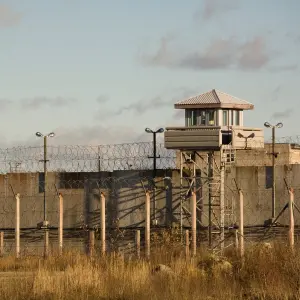
If you have a loved one is incarcerated in a state prison anywhere in the US and has been attacked and hospitalized, there are several steps you can take to help ensure their safety and well-being:
Contact the Prison Administration
Reach out to the prison’s administration, specifically the warden or a high-ranking prison official, to inquire about the incident and your loved one’s condition. They are responsible for ensuring the safety of inmates. If there is an ongoing threat to their safety, request that your loved one be moved to protective custody or a different facility.
Request Medical Records
Get as much information as you can on injury. You will need to contact the prison’s medical department or hospital to obtain details about the medical treatment being provided. If you are the next of kin or have legal authorization, you may be able to request medical records or updates. Which also brings up an important point that if you have a loved one in prison you will need to have their legal authorization to request this information before encounter problems.
Contact a Lawyer
In some cases, it may be important to contact a lawyer who practices in the your state, especially if you believe the prison has failed to protect your loved one or if their rights were violated. We strongly suggest you seek out an attorney who is board certified in criminal defense. You can seek out an attorney on your state bar association website, we have a directory of those associations here.
A lawyer can help you:
- File a complaint for negligence.
- Demand an investigation into the incident.
- Seek compensation if there was gross misconduct or neglect by the prison.
File a Formal Complaint
You can file a formal complaint or grievance with the state’s Department of Corrections (DOC) regarding the attack and hospital care, especially if there is suspicion of abuse or neglect by prison staff or other inmates.
Some states do have organizations which advocate for inmate rights and may be able to assist with filing complaints and bringing attention to issues of safety within the prison system. In New York state, the Legal Aid Society has The Prisoner’s Rights project.
Request an Internal Investigation
If you feel the situation is not being handled properly, you can request an internal investigation into the assault, especially if your loved one continues to be at risk.
Reach Out to External Advocacy Groups
In just about every state there are organizations that advocate for prison reform or inmate rights, so seek them out. Also contact the American Civil Liberties Union (ACLU) for advice. Also check social media for inmate support groups in your state.
Communicate with Your Loved One
If possible, communicate with your loved one through phone calls, video calls, letters, or visitation. Encourage them to provide as many details as possible about the attack, their assailant, and how they are being treated. Be aware that all prison communications with inmates are monitored by the facility.
Monitor for Retaliation or Neglect
After the attack, ensure that your loved one is not being retaliated against or neglected in terms of medical care. Continue to monitor their condition and treatment by staying in contact with the prison or their attorney. By taking these steps, you can help ensure that your loved one receives proper medical attention and that the appropriate measures are taken to ensure their safety while they remain incarcerated.

